Opinions
The Pains Of Being A Nigerian Part 2 – Manufacturing Sector in a Democratic Nigeria

The decline in manufacturing activities is one that gives a lot of concern to the citizens of Nigeria who have an honest interpretation of the political term called democracy.
As a result, there is massive importation of food, medicines, refined petroleum products, and various goods across the spectrum of economic activities. No wonder then that the value of the Naira continues to diminish against major foreign currencies, thus fuelling local inflation.
The main cause of this decline is the corrupt and inept political leadership the country has had over the years. The political class has instituted a perverse value system of get-rich-quick in which import trade in finished goods and public embezzlement are preferred.
Public corruption ensures there is a lack of basic infrastructure of electric power, potable water, good roads, and railways which are very necessary for the support of manufacturing.
Laying out adequate infrastructure presupposes good planning, which is never lacking, but the plans are often not adhered to.
Most of the industries in Nigeria are set up through the funding and technologies of foreign companies. The raw material inputs are designed to be imported such that there is perpetual demand for foreign exchange to import them; the factories shut down if foreign currencies are unavailable or too expensive to purchase.
A major Example of such companies was Erisco Foods Limited a local tomato manufacturer, which shut down operations in its N4 billion tomato paste processing plant located in Oregun, Lagos State. Mr. Eric Umeofia The company’s President, said it shut down its 450,000 tonnes tomato plant and sacked 1,500 workers out of its 2,520 entire workforces, and relocated its operations to China. According to Mr. Eric Umeofia, this is due to the anti-people policy refusal of CBN to allocate forex to the company for the importation of raw materials.
Another example is Dag Motorcycles Industries Nigeria Limited, they are assembler of Bajaj tricycles and motorcycles, this company was forced to cut down its 1,000 per day production capacity by up to 40 percent and terminated most of its staff.
With poor leadership, there is also a poor emphasis on research and development of raw materials, manufacturing technologies, and equipment fabrication.
Another impediment to manufacturing is unfair trade practices of industrialized countries: the grant of subsidies to their factories that, in turn, dump their products in Nigeria, thus out-competing the local industries to death.
Most industrial concerns in Nigeria are single proprietor businesses with very little capital. Accessing funds for expansion or to cope with difficult business cycles is a problem that ensures their demise.
Fraud and low productivity among employees of manufacturing outfits also contribute to de-industrialization.
In order to revive manufacturing, the following remedies are mandatory:
- The enthronement of honest democracy will throw up an accountable political class.
- With an accountable political class, there will be good industrial plans that will be faithfully implemented. The Rule of Law will be enforced to curb corruption both in the public and private sectors.
- A responsible government will also encourage sound education and research and development.
- One of the dividends of honest democracy is an invariably dependable infrastructure that will support local manufacturing.
- Public enlightenment for the patronage of local goods and services is also important; so is the tackling of foreign unfair trade practices.
- The public will also be encouraged to invest in shares on the local stock exchange to ensure more equitable distribution of wealth while supporting local industries with cheaper capital.
Entertainment
Top 10 Underground Rappers in Atlanta

Atlanta has long been known as a hub for innovative and influential music, with a rich history of producing some of the most groundbreaking artists in hip hop. In recent years, a new generation of rappers has emerged in the city’s underground scene, blending elements of trap, punk, and rock to create a sound that is raw, authentic, and uniquely Atlanta. Here are the top 10 underground rappers in Atlanta that you need to know.
Young Nudy
One of the most prominent figures in Atlanta’s underground rap scene is Young Nudy. Originally from East Atlanta, Nudy gained notoriety with his 2016 mixtape “Slimeball,” which featured collaborations with fellow Atlanta rapper 21 Savage. Nudy’s music is characterized by its raw energy and unfiltered lyrics, which explore the realities of life in the inner city. His latest album, “DR. EV4L,” is a testament to his lyrical prowess and unique sound, blending elements of trap, drill, and punk rock to create an intense and emotional listening experience.
Lil Gotit
Lil Gotit is another rising star in Atlanta’s underground rap scene. Hailing from the city’s Zone 6 neighborhood, Gotit has been making a name for himself with his unique style, which blends trap music with elements of punk and rock. Gotit’s music is known for its aggressive beats and dark, moody lyrics that touch on themes of drugs, violence, and street life. His latest album, “Top Chef Gotit,” is a powerful testament to his talent and his ability to push the boundaries of what is possible in hip hop.
Yung Mal
Yung Mal is a rapper from the Westside of Atlanta, known for his gritty, street-inspired lyrics and his ability to craft compelling hooks. He first gained attention with his 2017 mixtape “1.5 Way or No Way,” which showcased his unique flow and his ear for melody. Since then, he has continued to build him following with a string of well-received projects, including “Iceburg,” “6 Rings,” and “1.5 Way or No Way 2.”
Hoodrich Pablo Juan
Hoodrich Pablo Juan is a rapper from Atlanta’s Zone 6 neighborhood, known for his smooth flow and his laid-back, melodic style. He first gained attention with his 2017 mixtape “Designer Drugz,” which showcased his ability to craft catchy hooks and memorable verses. Since then, he has continued to build him following with a string of well-received projects, including “BLO: The Movie,” “DMV,” and “Hood Champ.”
Lil Keed
Lil Keed is a rapper from Atlanta’s Southside, known for his unique flow and his ability to blend elements of trap, R&B, and rock music. He first gained attention with his 2018 mixtape “Trapped on Cleveland 2,” which showcased his emotive lyrics and his ability to create anthemic hooks. Since then, he has continued to build him following with a string of well-received projects, including “Long Live Mexico,” “Trapped on Cleveland 3,” and “A.
Kenny Mason
Kenny Mason is a rapper from Atlanta’s Westside, known for his introspective lyrics and his ability to blend elements of rap, rock, and alternative music. He first gained attention with his 2019 project “Angelic Hoodrat,” which showcased his unique perspective and his gift for storytelling. Since then, he has continued to build him following with a string of well-received projects, including “Angelic Hoodrat: Supercut” and “AngelDust.”
2FeetBino
2FeetBino is a rapper from Atlanta’s Eastside, known for his charismatic personality and his infectious, catchy hooks. He first gained attention with his 2018 mixtape “No More Mr. Nice Guy,” which showcased his ability to create party anthems and his natural talent for making people dance. Since then, he has continued to build his following with a string of well-received projects, including “Broken Dreams,” “A Story Never Told,” and “Southside to Hollywood.”
BRS Kash
BRS Kash is a rapper from Atlanta’s Westside, known for his energetic flow and his ability to create infectious hooks. He first gained attention with his breakout single “Throat Baby,” which went viral on TikTok and helped him to gain a massive following. Since then, he has continued to build his brand with a string of well-received projects, including “Kash Only,” “Hurtin’ My Wrist,” and “Kash App.”
Yung Baby Tate
Yung Baby Tate is a rapper and singer from Atlanta, known for her unique blend of hip-hop, R&B, and pop music. She first gained attention with her 2018 project “BOYS,” which showcased her ability to create catchy, radio-friendly anthems that still retained a sense of authenticity and individuality. Since then, she has continued to build her following with a string of well-received projects, including “GIRLS,” “After the Rain,” and “IRL.”
Grip
Grip is a rapper from Atlanta, known for his introspective lyrics and his ability to blend elements of hip-hop, jazz, and spoken word poetry. He first gained attention with his 2017 project “Porch,” which showcased his gift for storytelling and his ability to capture the nuances of life in the inner city. Since then, he has continued to build him following with a string of well-received projects, including “Snubnose,” “HALO,” and “I Died for This!?”
Atlanta’s underground rap scene is full of talented and innovative artists, pushing the boundaries of what is possible in hip-hop. These 10 rappers represent the best of the best, each bringing their unique voice and perspective to the table. Whether you’re a fan of trap, punk, rock, R&B, or any other genre, there’s something for everyone in Atlanta’s thriving underground rap scene.
Entertainment
Afrobeats: The Global Sound Taking Over the Music Industry
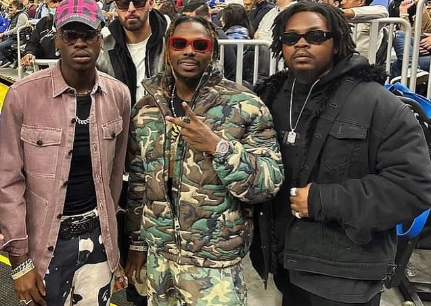
Afrobeats, also known as Afro-pop, is a music genre that originated in West Africa in the early 2000s. It is a fusion of traditional African rhythms, highlife, and hip-hop music. The genre has gained popularity globally in recent years and has become a dominant sound in mainstream music, particularly in Europe and the United States.
Origins of Afrobeats
Afrobeats originated from Nigeria, specifically from Lagos, the country’s commercial capital. The genre’s pioneers include Fela Kuti, King Sunny Ade, and Ebenezer Obey, who popularized African rhythms, particularly the Yoruba and Afrobeat sounds.
Afrobeats evolved in the 2000s with the emergence of a new generation of artists like D’banj, Wizkid, and Davido. These artists fused African rhythms with hip-hop, reggae, and R&B to create a unique sound that appealed to a wider audience.
Characteristics of Afrobeats
Afrobeats is characterized by its infectious rhythm, upbeat tempo, and danceable melodies. The music often features a blend of African percussion, guitar riffs, and electronic beats, with lyrics sung in a mix of English and African languages.
The music also emphasizes the importance of dance and often comes with a signature dance move that accompanies the song. For instance, the song “Zanku” by Zlatan Ibile comes with a dance move known as the Zanku legwork.
Global Popularity
Afrobeats have gained significant popularity outside of Africa in recent years. The genre’s popularity started to spread globally in 2012 when D’banj’s hit single “Oliver Twist” became a chart-topping song in the UK and the United States. The song opened up a global market for Afrobeats and paved the way for other African artists to break into the international music scene.
In recent years, Afrobeats has enjoyed massive success on the international scene, with artists like Burna Boy, Wizkid, and Davido collaborating with international stars such as Beyoncé, Drake, and Chris Brown. These collaborations have helped to put Afrobeats on the world stage and bring the genre to a global audience.
The Future of Afrobeats
The future of Afrobeats looks bright, with the genre continuing to gain popularity across the globe. In 2020, Wizkid’s album “Made in Lagos” became the first Afrobeats album to reach the top 10 on the US Billboard 200 chart.
The popularity of Afrobeats is also evident in the number of Afrobeats-inspired events and festivals that are held globally. The annual Afro Nation festival, which started in 2019, is a three-day festival that celebrates Afrobeat music and culture. The festival has been held in Portugal and Ghana, attracting fans from around the world.
Importance Of Afrobeats
- Promotes African culture: Afrobeats is a fusion of traditional African music, Western pop, and hip-hop. The genre’s sound is infused with African rhythms, melodies, and languages. By celebrating African culture, Afrobeats help to preserve and promote the continent’s diverse cultural heritage.
- Economic growth: The rise of Afrobeats has been a catalyst for economic growth in Africa. The genre has created employment opportunities for artists, producers, sound engineers, and other professionals in the music industry. The genre’s popularity has also led to the growth of music festivals and concerts, which attract thousands of music lovers and generate revenue for local businesses.
- Social impact: Afrobeats has become a voice for the African youth, addressing issues such as political corruption, social inequality, and poverty. The genre’s lyrics often reflect the struggles of everyday life in Africa, inspiring hope and motivation among the youth.
- Global recognition: Afrobeats has gained popularity beyond the shores of Africa, with the genre’s biggest stars performing in major cities around the world. The genre has also attracted collaborations with international artists, which has helped to promote African culture to a global audience.
- Unity: Afrobeats has become a unifying force in Africa, bringing together people from diverse backgrounds and nationalities. The genre’s popularity has transcended borders, promoting a sense of pan-Africanism and solidarity among Africans.
- Inspiration: Afrobeats has inspired a new generation of African musicians and artists, who have embraced the genre’s sound and fused it with their own unique styles. The genre has also inspired the emergence of new African fashion styles and dance trends.
One of the defining characteristics of Afrobeat is its complex rhythm. It is based on traditional African rhythms, with a strong emphasis on percussion instruments like the conga, bongo, and shekere. The rhythm is often polyrhythmic, meaning that multiple rhythms are played at the same time, creating a layered and intricate sound. The bass guitar is also an important component of Afrobeat, providing a deep and groovy foundation for the rhythm section.
Another distinguishing feature of Afrobeat is its political and social commentary. The genre emerged during a time of political and social upheaval in Nigeria, and its early pioneers used their music as a platform to address issues like corruption, poverty, and inequality. Fela Kuti, one of the most influential figures in Afrobeat, was known for his political activism and his willingness to speak out against the Nigerian government. His music was a powerful tool for social change, and his lyrics continue to resonate with audiences today.
Afrobeat also incorporates elements of traditional African music and culture, such as call-and-response vocals and African dance styles. The lyrics often contain references to African culture, history, and spirituality, reflecting a deep connection to the African continent and its people. The use of African languages and dialects in the lyrics further emphasizes the genre’s cultural roots.
The incorporation of Western music styles into Afrobeat is another factor that sets it apart from other genres. The genre’s pioneers were heavily influenced by jazz and funk, and these influences can be heard in the complex harmonies and melodic structures of the music. The use of horns, keyboards, and other Western instruments adds a layer of sophistication to the sound, creating a unique fusion of African and Western music.
The performance style of Afrobeat is a key element of its uniqueness. Live performances are often energetic and engaging, with large bands and dynamic stage shows. The musicians are known for their improvisational skills, and solos are a common feature of the music. The audience is often encouraged to participate in the performance, with call-and-response vocals and dance breaks.
Afrobeat is a unique genre of music that combines traditional African rhythms, Western music styles, political and social commentary, and elements of African culture and spirituality. Its complex rhythm, political and social significance, cultural roots, incorporation of Western music styles, and engaging performance style are all factors that contribute to its distinctiveness. As Afrobeat continues to gain popularity around the world, it is clear that its unique sound and cultural significance will continue to make it a beloved and important genre of music.
Opinions
9 Health Benefits Of Coconut Water You Should Know
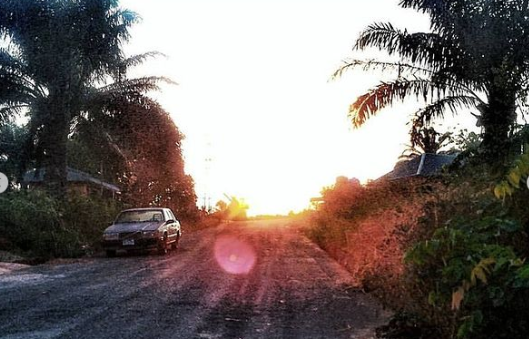
What are the health benefits of coconut water? Here are 9 Health Benefits Of Coconut Water you should know about!
Growing up, I was told I would become intellectually dull if I drank coconut water so I avoided it like a plague. Being a child, I never wondered why all the cups of coconut water seemed to disappear soon after into the stomachs of adults around and the fact that they never went dull afterward. I just believed what I was told. Of course, I have long since come to know the truth about coconut water and I never fail to drink it each chance I get.
Coconut water is that whitish liquid found in the center of young, green coconuts. Not only is this juice delicious and refreshing, but it is also a major thirst quencher and comes packed with a lot of beneficial nutrients.
Each young coconut contains amazing nutrients like potassium, magnesium, b-complex, zinc, vitamins, amino acids, cytokinins, and copper. It is also low in calories and rich in antioxidants useful for ridding your body of toxins.
Here are Some Reasons You Should Take Coconut Water
1. Keeps You Rehydrated after an Exercise
Coconut water has a high electrolyte composition which makes it a good choice for replacing fluid lost through sweating or vomiting. It is readily absorbed into your body so one or two cups taken after a vigorous exercise session will rehydrate your body and give you an energy boost.
2. Lowers Blood Pressure
Taking coconut water regularly will also help you manage your blood pressure if you sure suffer from a high one as stated by recent research published in the West Indian Medical Journal in 2005.
Coconut water is high in vitamin c, potassium, and magnesium, key nutrients that help regulate blood pressure. It also contains arginine, an important element needed for relaxing your blood vessels and promoting blood circulation.
3. An Excellent Cure for Hangovers
Hangovers are caused in part by dehydration, which is why you feel funny when you have one. Since coconut water rehydrates you, it will have you feeling better in no time.
4. Eliminates Stomach Upset
If you are experiencing an upset stomach, then you should take one or two cups of coconut water. This natural health-enhancing juice has the ability to heal stomach upset caused by an inflamed stomach lining as it contains tannins, an important element known for reducing inflammation.
5. Promotes Weight Loss
Coconut water promotes weight loss and maintenance in that it is low in calories. People who choose to replace their regular high-sugar drinks with coconut water report significant weight loss and maintenance over time.
Coconut water is also high in fiber which will keep you feeling full for longer.
6. It is Beneficial for Pregnant Women
Pregnant women experience a lot of discomforts and sometimes illness during their pregnancy. Some of these include nausea, heartburn, and constipation.
Coconut water is recommended for pregnant women as it aids digestion, which will in turn eliminate heartburn and constipation during pregnancy.
7. It Boosts Immunity
Due to the dense nutrient composition of coconut water, taking it will boost your immunity. The vitamins, lauric acid, and essential nutrients will keep your body fortified to keep away infections.
8. Coconut Water is Anti-aging
Again, the lauric acid and antimicrobial properties of coconut water work on your skin, keeping off infections, wrinkles, and fine lines.
It will also eliminate blemishes, acne, sun-damaged skin, and other skin infections.
9. Revitalizes Damaged Hair
The rich vitamin K and iron content of coconut water work to revitalize your damaged hair, restoring it to its previous healthy state, It will also eliminate dandruff, and hair loss, and treat the dry frizzy scalp.
Coconut water is considered safe and has no known recorded side effects. You can take as much as you want, however, pregnant or nursing women are advised to take this health tonic on the directives of their healthcare professional.
-

 Entertainment2 years ago
Entertainment2 years agoTop 10 Underground Rappers in Atlanta
-

 Entertainment2 years ago
Entertainment2 years agoTop 15 Slay Queens In South Africa
-
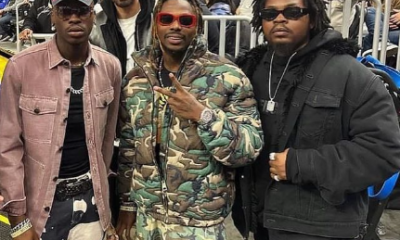
 Entertainment2 years ago
Entertainment2 years agoAfrobeats: The Global Sound Taking Over the Music Industry
-
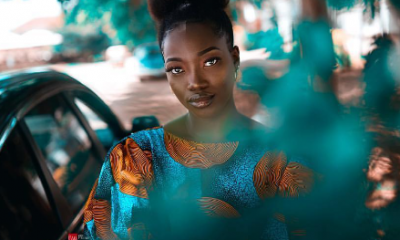
 Opinions2 years ago
Opinions2 years agoHow to Make Money Online as a Woman/Mother/Student
-
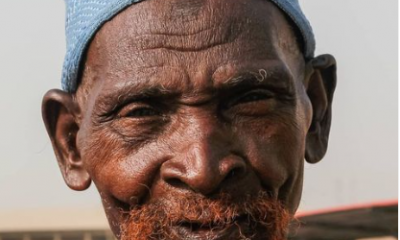
 Opinions2 years ago
Opinions2 years agoDepression In The Society! Causes, Symtoms, Treatment
-
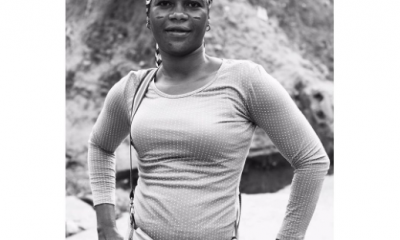
 Opinions2 years ago
Opinions2 years agoImportance Of Girl Child Education!!
-
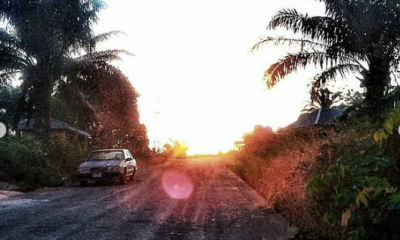
 Opinions2 years ago
Opinions2 years ago9 Health Benefits Of Coconut Water You Should Know
-
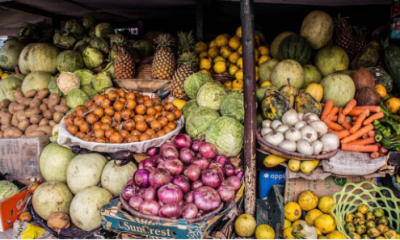
 Opinions2 years ago
Opinions2 years ago7 Basic Health Ethics You Should Know!
